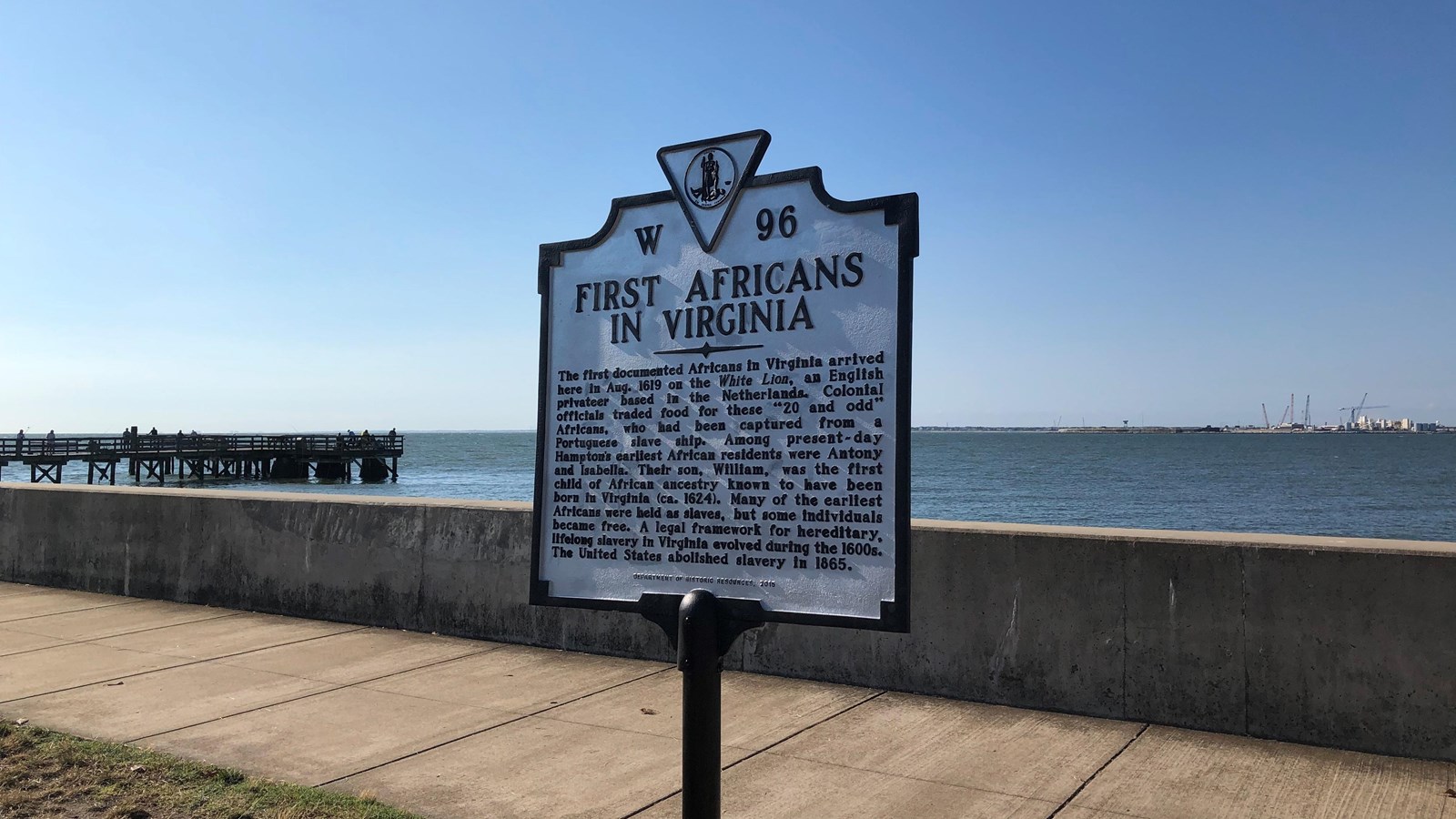Last updated: August 1, 2024
Place
First Africans in Virginia Marker

NPS Photo
Cellular Signal, Dock/Pier, Historical/Interpretive Information/Exhibits, Parking - Auto, Scenic View/Photo Spot, Wheelchair Accessible
The Commonwealth of Virginia placed the "First Africans in Virginia" marker in 1994. It stands on the seawall at Old Point Comfort. The marker represents and commemorates where the first enslaved Africans came to Virginia.
Text on the marker reads:
W 96
First Africans in Virginia
The first documented Africans in Virginia arrived in 1619 when a Dutch warship landed here at Point Comfort. The “twenty and odd” Africans, captured from the Spanish, were traded to the Virginia colonists in exchange for foodstuffs. Early Africans who lived here included Antony and Isabell, and their son William, likely the first black child in present-day Hampton. They served Point Comfort Commander William Tucker, but whether the early Africans were treated as indentured servants or slaves is uncertain. The institution of slavery evolved during the 17th century as the term of service for Africans was extended for life. The U.S. abolished slavery in 1863.
Department of Historic Resources, 1994
